Memory Management

Fundamentals on Computing for Robotics, Graphics and Computer Vision
Darío Suárez - Adolfo MuñozMemory Management
- Memory stores programs; i.e., instructions and data
- The Operating System and the C++ runtime manages memory
Quiz: What is a variable?
A pair of a name with its semantics and a corresponding location for storage, normally memory
Quiz: What is a pointer?
A variable that stores a memory address
Quiz: Assuming a 64-bit address space, what are the sizes of all variables in the figure?
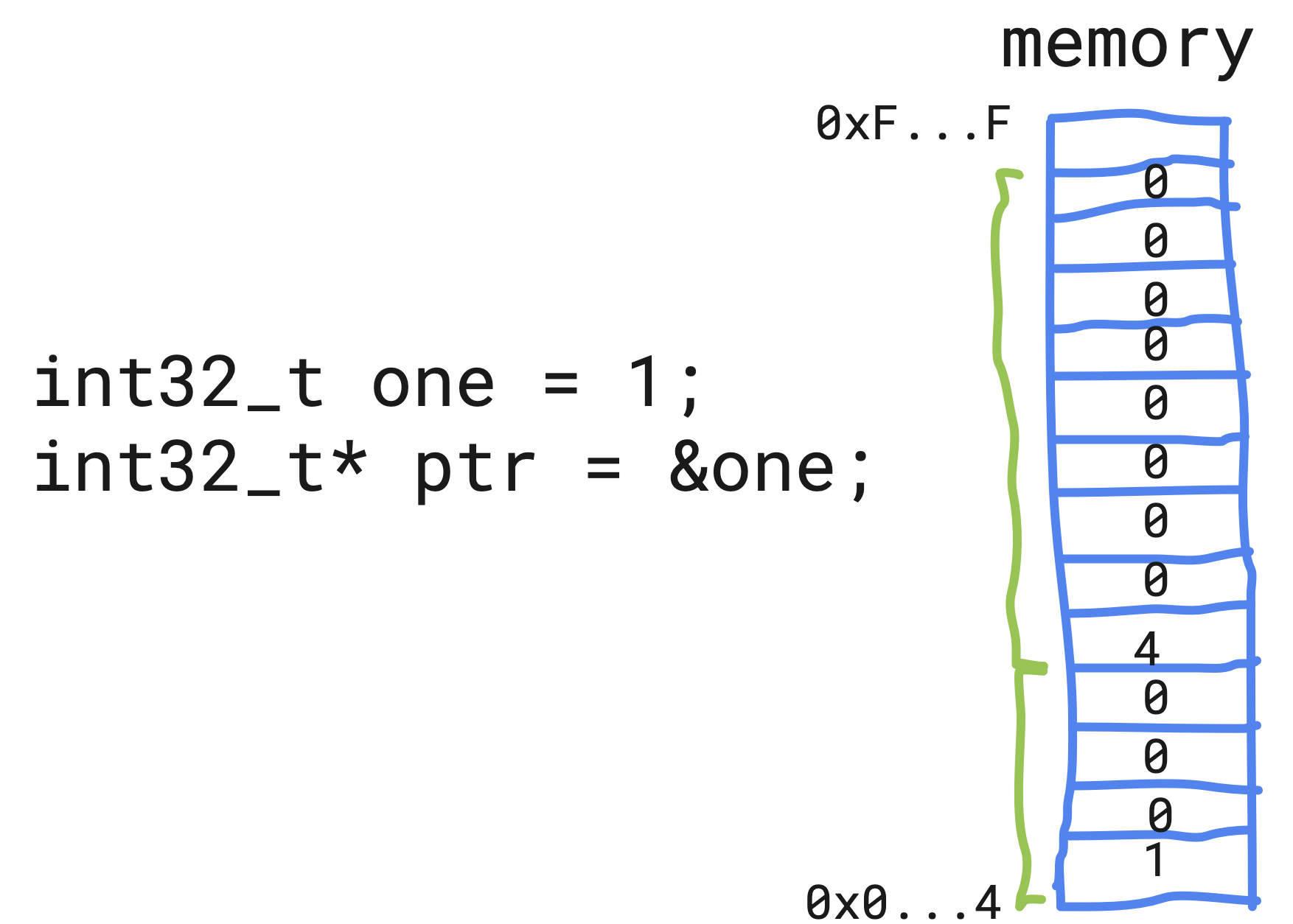
Parts of a Program in Memory
- According to ELF, programs are divided into segments (memory), sections (linker)
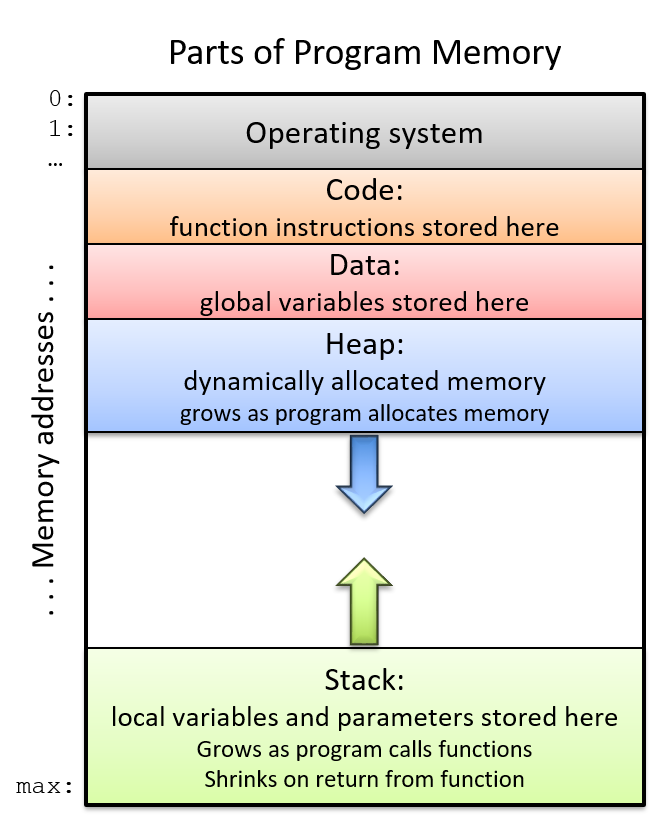
Text and Operating System parts
- Operating System: The operating system restricts some memory area for itself
- Text: Memory segment storing the code of our program; e.g.,
main
function
Data, Heap, and Stack and variable scopes
- Data: Area storing global variables with lifetime equal to the program
- Heap: Area storing variables dynamically allocated, unknown lifetime and not function limited
- Stack: Area storing variables created within the scope of a function
Example of variables and their section mapping
Heap and Stack example
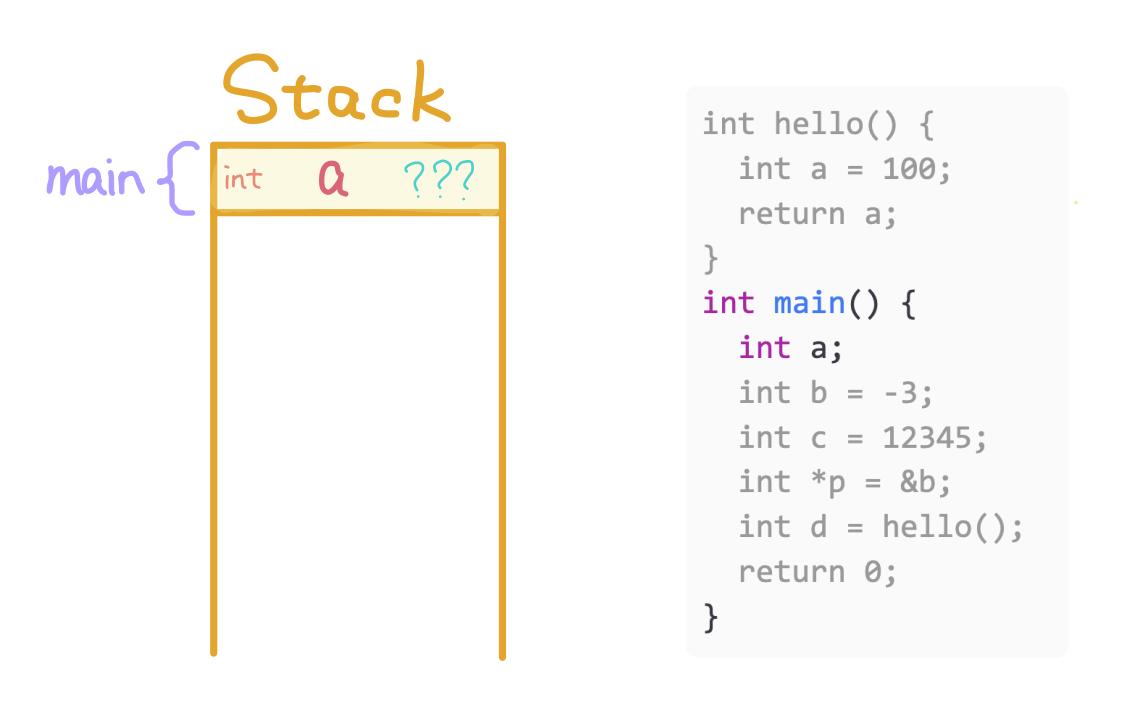
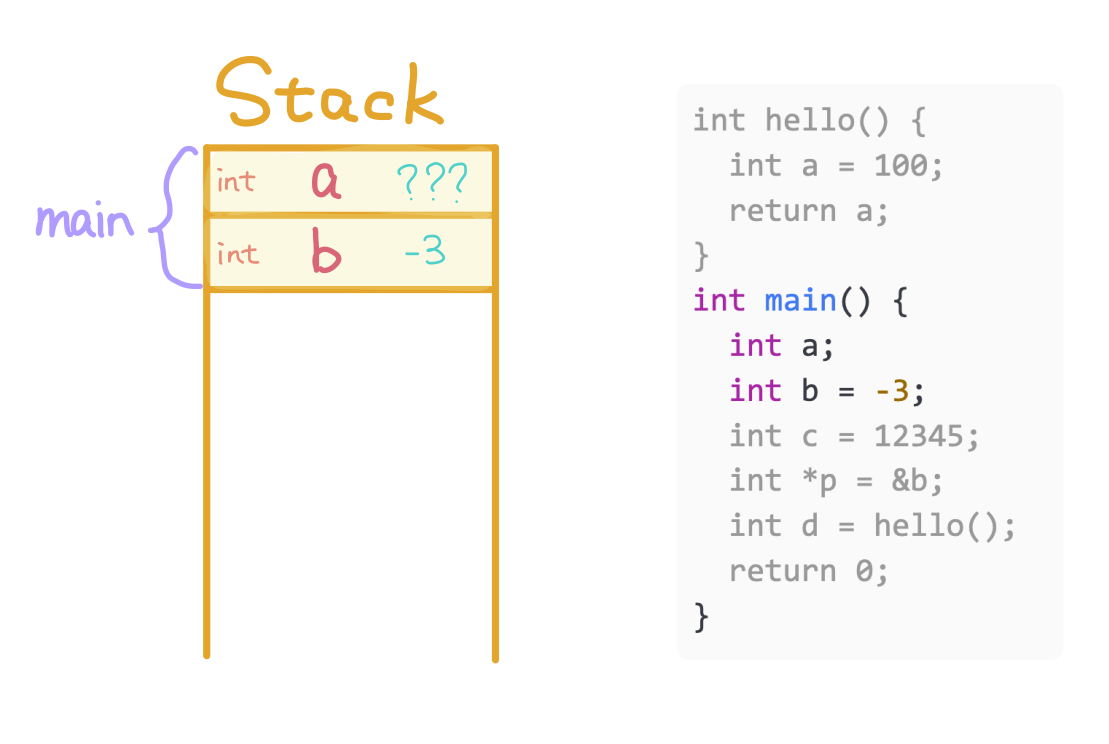
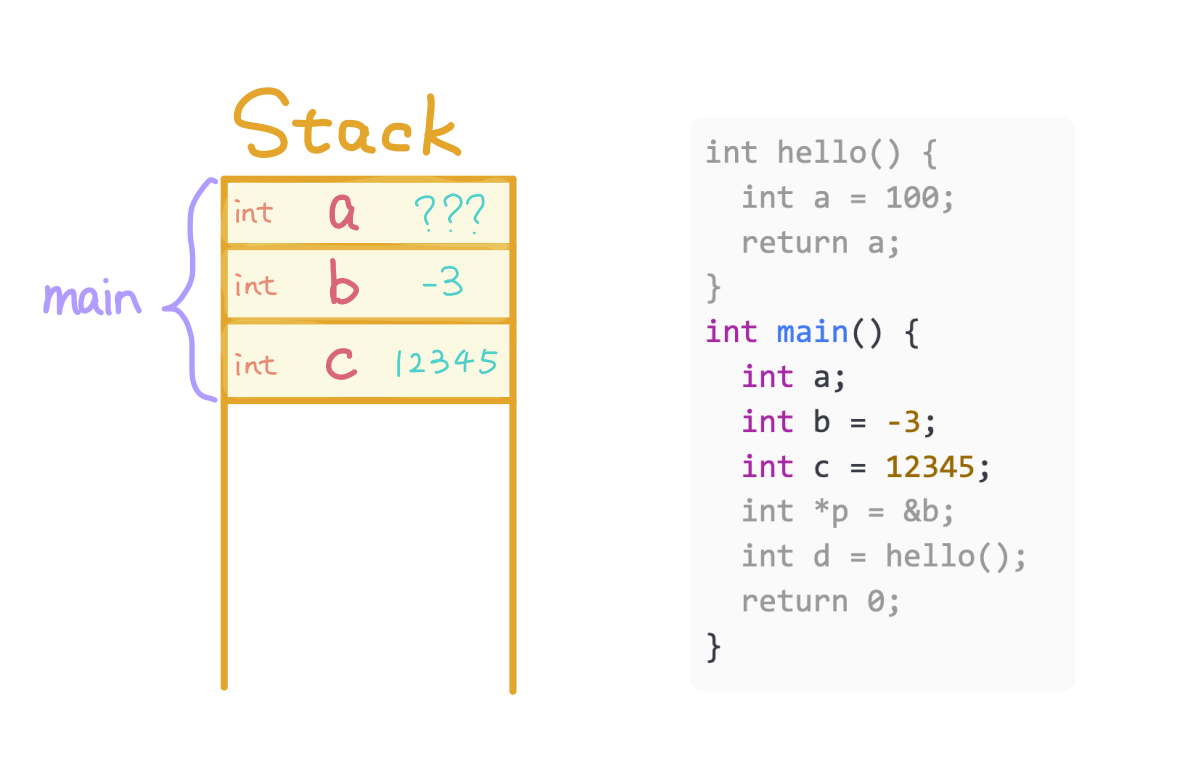
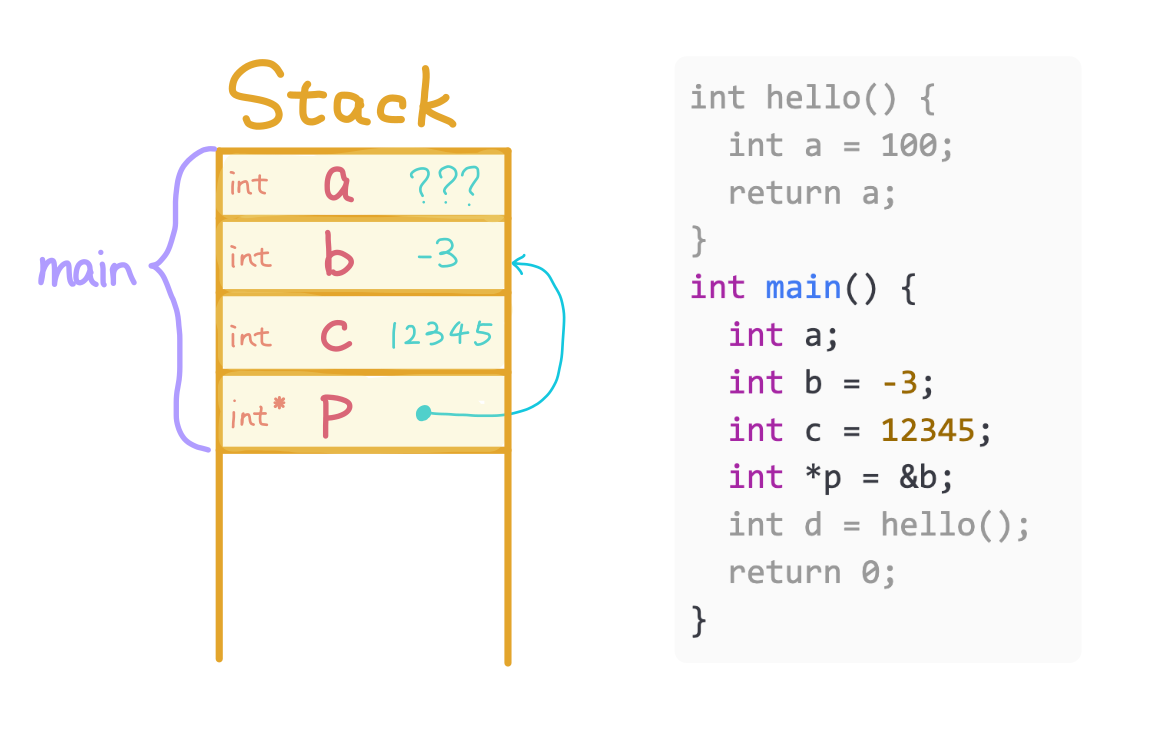
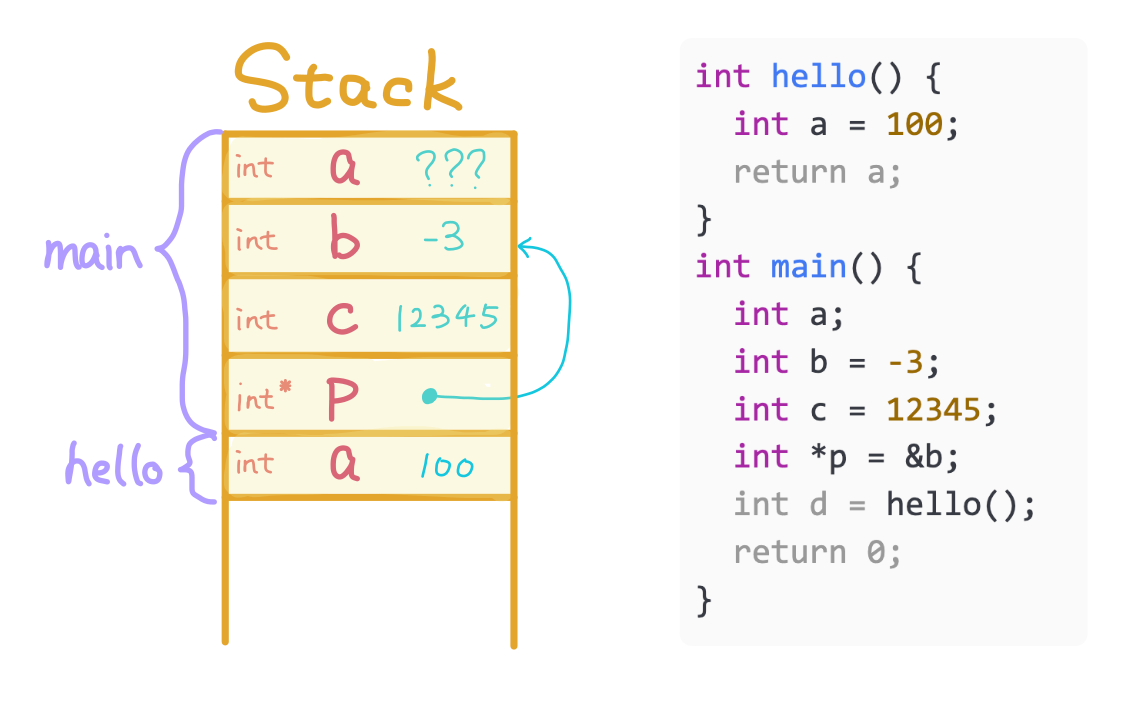
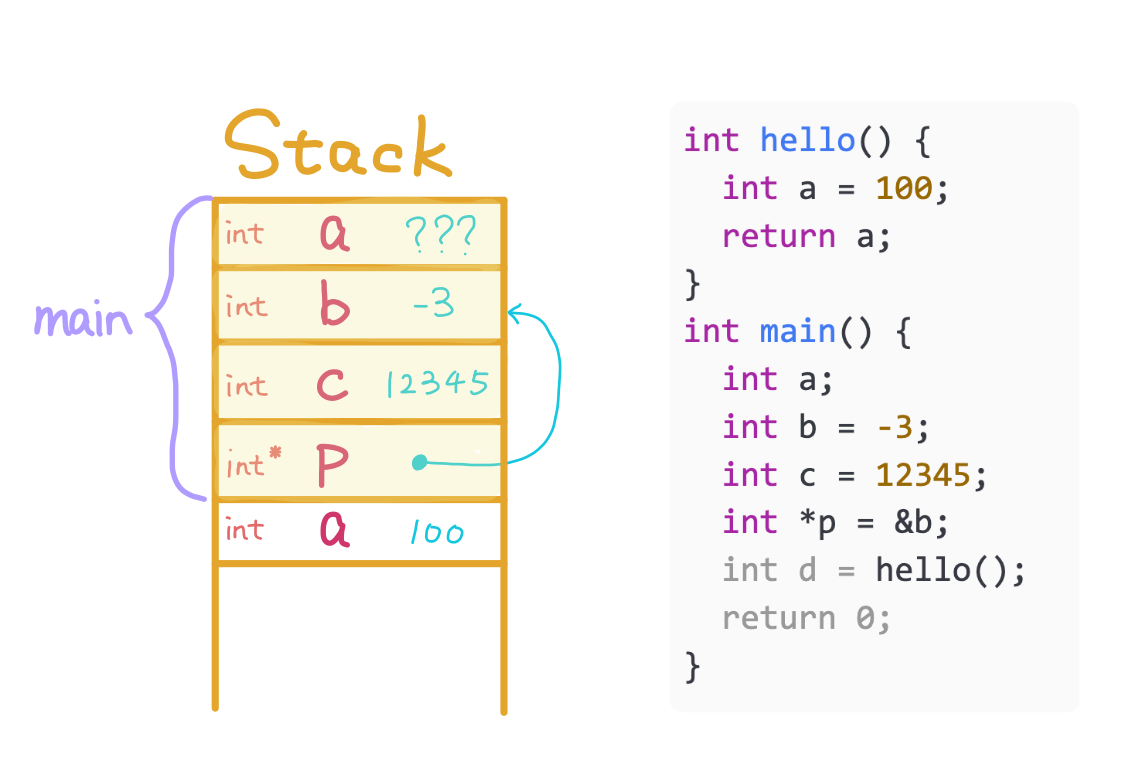
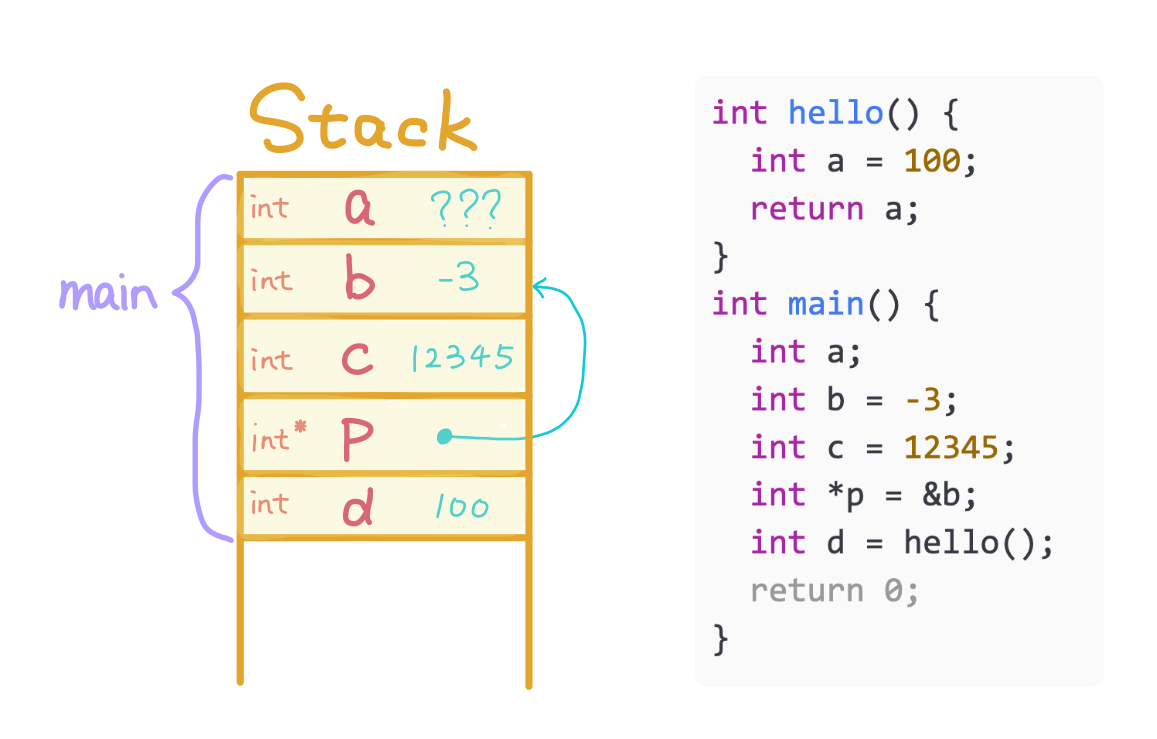
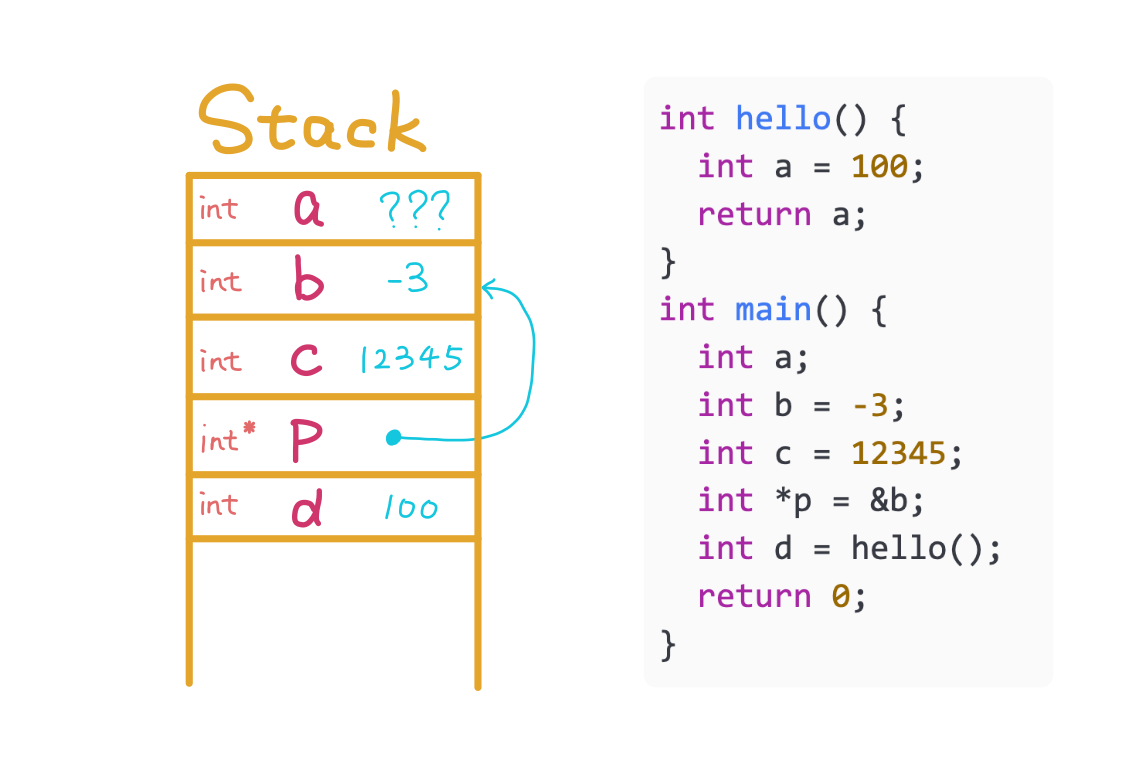
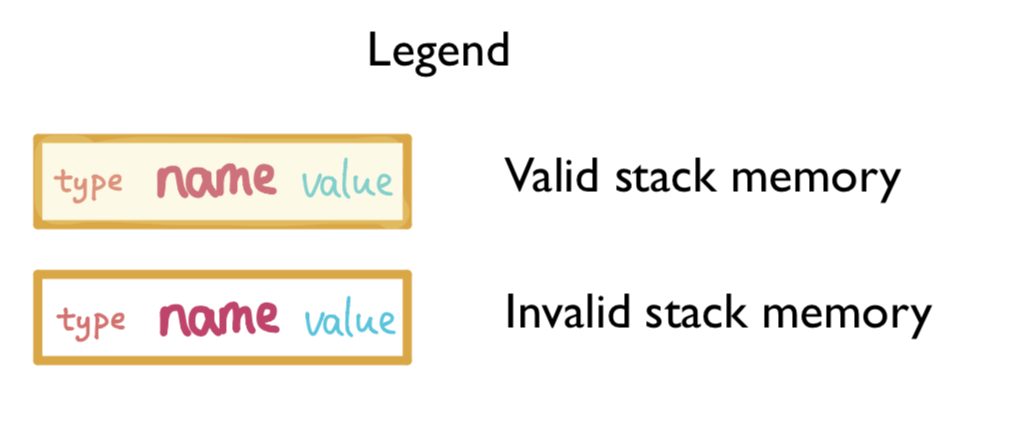 source: https://courses.grainger.illinois.edu/cs225/fa2022/resources/stack-heap/
source: https://courses.grainger.illinois.edu/cs225/fa2022/resources/stack-heap/
Quiz: Pointers' storage
Can the heap, stack and data sections store pointers?
Quiz: What is the output of this code?
C++ parameters default pass
In C++, pass-by-copy is the default policy
Quiz: What is the output of this code?
Pointers to the rescue
Pointers can be dangerous
nullptr, the pointer literal
nullptrrepresents the null pointer constant- Its type is
std::nullptr_tcan be converted to any pointer type - Never use
NULLor0for pointers
NULL bad use example
References
- An alias to an already-existing object or function
- Access to references are the same to the object they point to
Reference example
Pointers and Arrays
Arrays
- Definition: contiguously allocated nonempty sequence of objects with a particular element type. Size cannot change
- Example:
int array[3]={0, 1, 2}; - Normally, they will be allocated in the stack
- Please prefer
std::arraycontainer over arrays
Dynamic Memory Allocation
- Dynamic memory is stored in the heap section. Enlarges and reduces at run time
- Allocation:
int * ptr_int = new int;int * array_int = new int[4]; - Deallocation:
delete ptr_int;delete [] array_int;
Pointer Arithmetic
- C++ allows arithmetic operations on pointers
a[i] == *(a + i * sizeof(a[0]))
Quiz: what is the final value of these pointers
-
Please assume all pointers point to address 16
uint8_t *ptr = 16; ptr+=2;int *ptr = 16; ptr=nullptr;int *ptr = 16; ptr+=3;